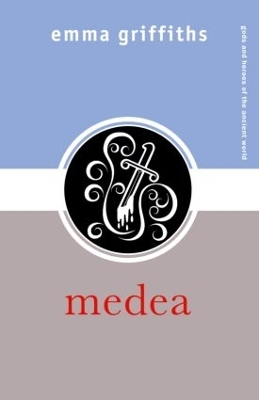
Medea
Seiten
2005
Routledge (Verlag)
978-0-415-30070-4 (ISBN)
Routledge (Verlag)
978-0-415-30070-4 (ISBN)
Both visual and literary, this indispensable guide to the fascinating mythical figure of Medea gives access to the latest critical thinking in the field, brings into focus previously unexplored themes, and provides an incisive introduction to the story and the ideology of ancient Greece.
Giving access to the latest critical thinking on the subject, Medea is a comprehensive guide to sources that paints a vivid portrait of the Greek sorceress Medea, famed in myth for the murder of her children after she is banished from her own home and replaced by a new wife. Emma Griffiths brings into focus previously unexplored themes of the Medea myth, and provides an incisive introduction to the story and its history.
Studying Medea’s ‘everywoman’ status – one that has caused many intricacies of her tale to be overlooked – Griffiths places the story in ancient and modern context and reveals fascinating insights into ancient Greece and its ideology, the importance of life, the role of women and the position of the outsider.
In clear, user-friendly terms, the book situates the myth within analytical frameworks such as psychoanalysis, and Griffiths highlights Medea’s position in current classical study as well as her lasting appeal.
Giving access to the latest critical thinking on the subject, Medea is a comprehensive guide to sources that paints a vivid portrait of the Greek sorceress Medea, famed in myth for the murder of her children after she is banished from her own home and replaced by a new wife. Emma Griffiths brings into focus previously unexplored themes of the Medea myth, and provides an incisive introduction to the story and its history.
Studying Medea’s ‘everywoman’ status – one that has caused many intricacies of her tale to be overlooked – Griffiths places the story in ancient and modern context and reveals fascinating insights into ancient Greece and its ideology, the importance of life, the role of women and the position of the outsider.
In clear, user-friendly terms, the book situates the myth within analytical frameworks such as psychoanalysis, and Griffiths highlights Medea’s position in current classical study as well as her lasting appeal.
Emma Griffiths is Lecturer in Classics at the University of Manchester.
1. Introducing Medea 2. Mythology and Sources 3. Key Themes: Origins, Folktale and Structuralism 4. Key Themes: Witchcraft, Children and Divinity 5. Key Themes: Ethinicity, Gender and Philosophy 6. Euripides' Version of Myth 7. Myth about Myth: From Greece to Rome 8. Medea Afterwards: Medea after Greece and Rome 9. Medea Afterwards: Medea in the Twentieth and Twenty-First Centuries. Guide to Further Reading. Bibliography
| Erscheint lt. Verlag | 13.12.2005 |
|---|---|
| Reihe/Serie | Gods and Heroes of the Ancient World |
| Zusatzinfo | 1 Line drawings, black and white; 5 Halftones, black and white |
| Verlagsort | London |
| Sprache | englisch |
| Maße | 129 x 198 mm |
| Gewicht | 186 g |
| Themenwelt | Literatur ► Klassiker / Moderne Klassiker |
| Geisteswissenschaften ► Archäologie | |
| Geschichte ► Allgemeine Geschichte ► Altertum / Antike | |
| Geisteswissenschaften ► Religion / Theologie ► Weitere Religionen | |
| Geisteswissenschaften ► Sprach- / Literaturwissenschaft ► Latein / Altgriechisch | |
| ISBN-10 | 0-415-30070-3 / 0415300703 |
| ISBN-13 | 978-0-415-30070-4 / 9780415300704 |
| Zustand | Neuware |
| Haben Sie eine Frage zum Produkt? |
Mehr entdecken
aus dem Bereich
aus dem Bereich
Die unglaubliche Geschichte eines antiken Söldnerheeres
Buch | Hardcover (2022)
C.H.Beck (Verlag)
28,00 €
die Inszenierung der Politik in der römischen Republik
Buch | Hardcover (2023)
C.H.Beck (Verlag)
48,00 €


